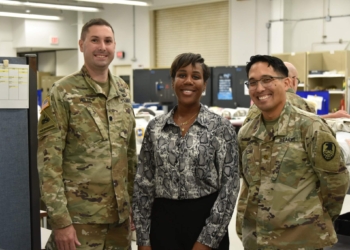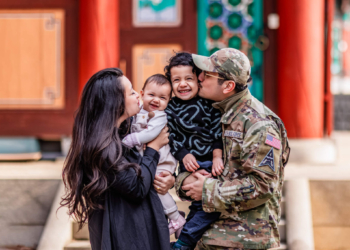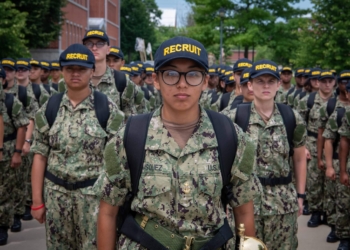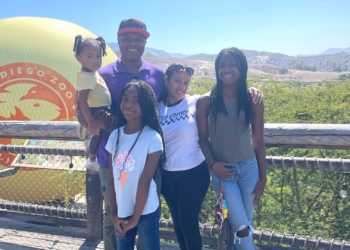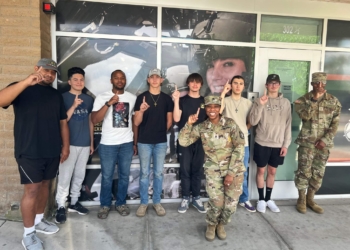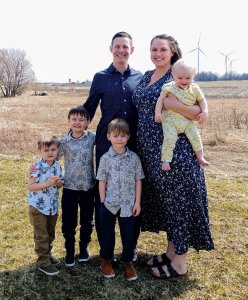 On the 20th anniversary of the Sept. 11 attacks, a select group of America’s soldiers, airmen, Coasties, sailors, and Marines are remembering why they joined.
On the 20th anniversary of the Sept. 11 attacks, a select group of America’s soldiers, airmen, Coasties, sailors, and Marines are remembering why they joined.
Army Capt. Jonathan Steel was one month from his 10th birthday and reading at home when his grandmother called and told his mother to turn on the TV. Together, they watched live as the second plane hit the South Tower. His mother cried. Steel didn’t — but his life was forever changed.
“I didn’t have a firm grasp on why it happened, but it definitely fueled my spark to join the military,” he said. “The following months as we went into Afghanistan and subsequently Iraq, I remember watching coverage with Tom Brokaw and Brian Williams during the nightly news. Those nights left a pretty big impact on me during my formative years.”
Steel enlisted in November 2009 and eventually trained as an indirect fire infantryman. Today, he serves as an assistant professor of military science at Norwich University in Vermont and said the last 11 years have “flown by.” It seems like just yesterday, he said, that he followed in several relatives’ footsteps and raised his right hand in service to his country.
Read: Bonded by tragedy
“My great-grandfather was a veterinarian responsible for the last shipment of horses to France during WWI, both of my grandfathers served in the Army between WWII and the Korean War, and I had two uncles in the Air Force,” Steel said. “It was a dream since I was a kid, and when I heard God tell me that is what I needed to do, I pursued it wholeheartedly.”
He couldn’t protect his fellow Americans when he was a child watching the towers collapse. But volunteering as a grown man to fight back that same sort of evil is something Steel called his dream career.
“I always make sure to put something on Facebook in remembrance of Sept. 11 and tell my four boys about what happened and why we need to remember,” he said.
For some, it was foresight
The attacks surprised almost everyone around the globe. But not Navy Hospital Corpsman 2nd Class Jorge D. Tarafa, who took note of increasing terrorist violence worldwide in the years leading up to Sept. 11. He had already served in the military, leaving in 1994 to care for an ill family member. But his study of history alongside his instincts told him more attacks were imminent, and he wanted to be ready. Something big, he felt, was on its way.
Tarafa reenlisted on Sept. 9, 2001. Just two days later, he was working on his truck in Tennessee when someone told him about the first plane. Before the second strike, he said out loud, “We are being attacked.”
“I felt at the time I was a year late in my gut,” he said. “The Sept. 11 attack on the Towers was the unfortunate and horrific validation of my years-long concerns and motivation to take the fight to the bad guys.”
In the coming months, Tarafa would do exactly that, using his life-saving skills in the battle of Fallujah in 2004. Today, he is a full-time student in animal-assisted therapy, focusing on veterans recovering from service or combat injuries.
Veterans’ causes and preventing future violence are a shared passion for both Tarafa and Steel. Tarafa’s unit has lost more members to homicide, suicide, and overdoses than to combat, he said, while Steel pointed to the massive financial and mental costs the War on Terror has taken on our nation.
Tarafa hoped America acts with “dignity and reflection” on the 20th anniversary. Steel echoed the thought, recalling the unity of “September 12.”
“I want people to remember what we are capable of as a nation and that we can come together again,” he said. “I just pray it doesn’t take another event like 9/11 to get there.”
Read comments

















